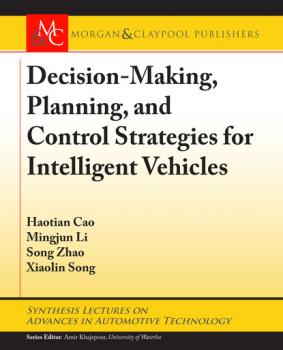Программы
Различные книги в жанре ПрограммыThe AI-Powered Enterprise
Learn how to develop and employ an ontology , the secret weapon for successfully using artificial intelligence to create a powerful competitive advantage in your business. The AI-Powered Enterprise examines two fundamental questions: First, how will the future be different as a result of artificial intelligence? And second, what must companies do to stake their claim on that future? When the Web came along in the mid-90s, it transformed the behavior of customers and remade whole industries. Now, as part of its promise to bring revolutionary change in untold ways to human activity, artificial intelligence—AI—is about to create another complete transformation in how companies create and deliver value to customers. But despite the billions spent so far on bots and other tools, AI continues to stumble. Why can't it magically use all the data organizations generate to make them run faster and better? Because something is missing. AI works only when it understands the soul of the business. An ontology is a holistic digital model of every piece of information that matters to the business, from processes to products to people, and it's what makes the difference between the promise of AI and delivering on that promise. Business leaders who want to catch the AI wave—rather than be crushed by it—need to read The AI-Powered Enterprise . The book is the first to combine a sophisticated explanation of how AI works with a practical approach to applying AI to the problems of business, from customer experience to business operations to product development.
Getting to Know Web GIS
Getting to Know Web GIS , third edition, pairs fundamental principles with step-by-step exercises to teach readers how to share resources online and build Web GIS apps easily and quickly. Start now building Web apps without a single line of programming, and then move on to developing more advanced skills using a variety of Web GIS technology.
Instead of focusing on individual products, this book teaches Web GIS technologies as a holistic platform. In each chapter, readers complete an application project using multiple products from the browser/client side to the server side. This edition includes new chapters and sections on big data analysis, image services, raster analysis, virtual reality (VR), augmented reality (AR), Arcade, vector tiling, Survey123, ArcGIS API for Python, Internet of Things (IoT), artificial intelligence (AI), Operations Dashboard, and portal collaboration.
A practical manual for classroom lab and on-the-job training, Getting to Know Web GIS includes downloadable teaching slides and exercise data.
Esri ArcGIS Desktop Professional Certification Study Guide
Authored by senior Esri instructor, Mike FlanaganIntegrated with continually updating online resources The only ArcGIS Desktop Professional Certification study guide
Большая книга Roblox. Как создавать свои миры и делать игру незабываемой
Roblox – компьютерная платформа, набирающая все большую и большую популярность. В ней можно создавать свои уникальные миры и играть в огромное количество различных игр. «Большая книга Roblox» станет отличным помощником в деле освоения платформы. Здесь вы найдете все – от инструкций о том, как играть, до основ программирования и советов по созданию различных миров своими руками. Наше руководство поможет вам достичь небывалых высот и стать крутым разработчиком в Roblox.









